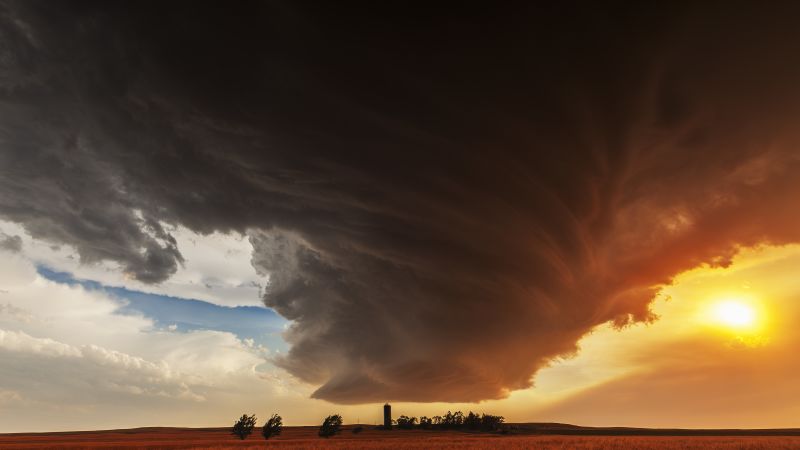Utah’s Great Salt Lake is retreating fast. It has lost 73% of its water and 60% of its surface area since the mid-19th century due to excessive water extraction. What was once a keystone ecosystem — sustaining rainfall and providing habitat for millions of migratory birds — is now at risk of disappearing completely.
Chilean artist Alfredo Jaar has documented the unfolding disaster. His atmospheric photographs show shallow waters, bare ground and toxic dust. He calls it “a lament for our dying planet.”
His series, titled “The End,” has won the prestigious Prix Pictet, a global award for photography and sustainability.
In its 11th year, the award focuses on a different sustainability issue each edition. This year’s theme was “Storm.” Twelve works were shortlisted and the winner, Jaar, was awarded 100,000 Swiss Francs ($124,000).
Michael Benson, director of Prix Pictet, told CNN via email that storms have become a common feature in many people’s lives. “It is the dramatic expression of nature’s wild side which is dramatically amplified by the dramatic disappearance of native species, the alarming loss of Arctic ice and the increasing frequency of wildfires.
“It is also the defining characteristic of our age where we seem to be forever holding our breath in the anticipation of some unspeakable horror to come.”
The theme was taken literally by photographers with works spotlighting the natural phenomenon of storms and increasingly frequent extreme weather events. Italian photographer Marina Caneve looked at the long-term impact of the floods and landslides that devastated the Dolomites in northern Italy in 1966, and the inevitability of future catastrophes. While US-born Camille Seaman photographed supercell thunderstorms that can produce hail the size of grapefruits.
There were also more metaphorical realizations of “storm,” with representations of political upheaval or social unrest. For instance, Hungarian photographer Balazs Gardi’s powerful chronicle of the post-election attack on the US Capitol building on January 6, 2021.
“Images of social divisions arise out of issues of sustainability,” said Benson. “For example, as people are forced from their homes by rising water levels or intense heat, migration increases which in turn gives rise to division and social discord with which we are all too familiar today.”
While most of the shortlisted works show devastation, displacement and social disorder, they are also a potential tool for change.
“We have become increasingly numb to the problems caused by the global climate crisis,” said Benson. “These images cut through that numbness, move the debate beyond language and convey the urgent need for action.
The shortlisted works are being exhibited at London’s Victoria & Albert Museum, from today until October 19, 2025.
